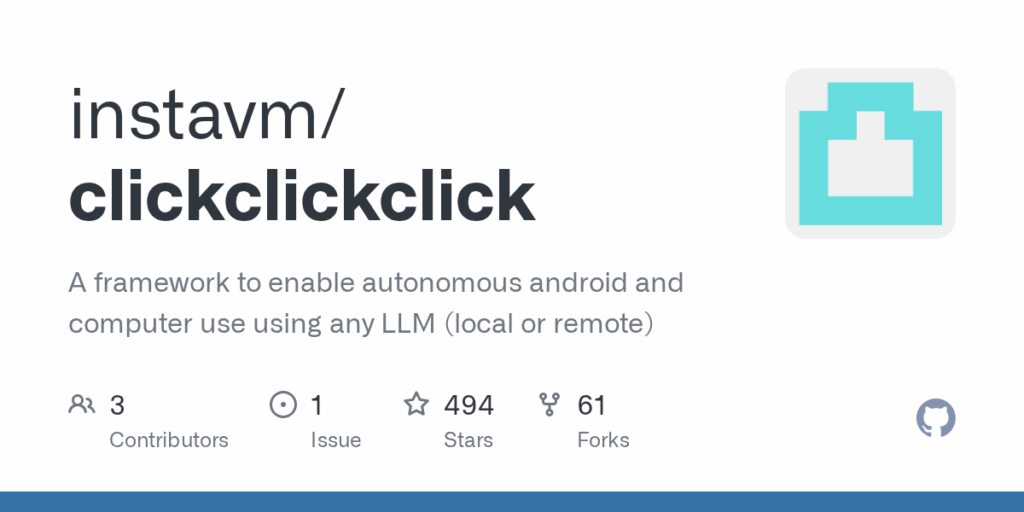clickclickclick
Basic Information
ClickClickClick is a developer-focused framework for building and running autonomous control tasks on Android devices and macOS computers using large language models. It coordinates planning and visual element detection to translate natural-language task descriptions into UI actions such as opening apps, navigating websites, composing drafts, and interacting with on-screen elements. The project supports multiple LLM providers, including OpenAI, Anthropic Claude, Google Gemini, and local Ollama models, and exposes a CLI, a Python API, a REST API, and a Gradio web interface so tasks can be executed interactively, programmatically, or via HTTP. Configuration is driven by YAML files and environment variables for model keys and executor settings. The repo includes examples for Gmail, Maps, browsing, and system tasks, troubleshooting guidance for ADB and macOS permissions, and development instructions for running tests and installing in editable mode.








